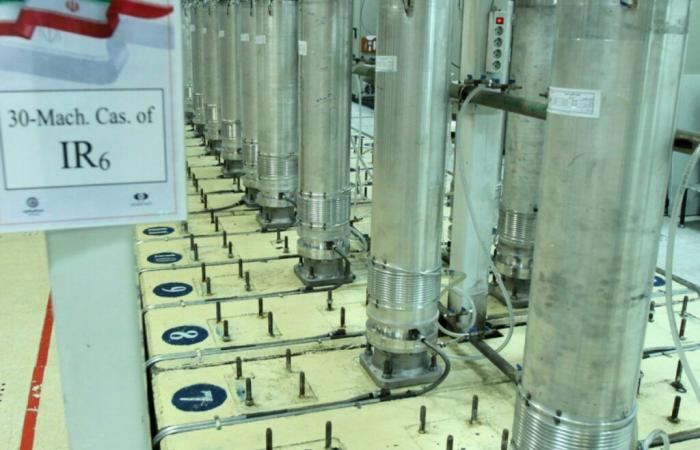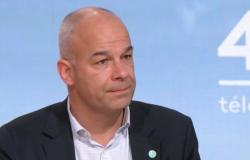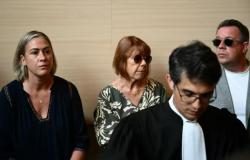Keystone-SDA
Talks are being held on Friday in Geneva between Iran, Germany, France and the United Kingdom. On the menu: the Iranian nuclear issue, Russia and the situation in the Middle East, less than two months before Donald Trump returns to the White House.
This content was published on
November 29, 2024 – 07:35
(Keystone-ATS) On the eve of this meeting, the number two in European diplomacy, Enrique Mora, said he had a “frank discussion” in Geneva on Thursday with Majid Takht-Ravanchi and Kazem Gharibabadi, two deputies of Foreign Minister Abbas Araghchi .
This focused “on Iran’s support for Russia, which must stop, on the nuclear issue, which must find a diplomatic solution, on regional tensions – it is important that all parties avoid escalation – and human rights,” he said on X.
Placed as a follow-up to a meeting in New York in September, Friday’s meeting is shrouded in the greatest discretion, neither the names of the participants nor the place where the diplomats of the four countries are to meet having been revealed.
It takes place in a context of strong tensions in the Middle East, between Iran, its allies and Israel, and less than two months before the return to the White House of Donald Trump, who had been the architect of a so-called policy of “maximum pressure” against Iran during his first term.
Round the corners
For Tehran, the aim of the talks in Switzerland is to avoid a “doubly disastrous” situation which would place Iran once again facing this American policy with the addition, this time, of that of the Europeans, explains to AFP the Iranian political scientist Mostafa Shirmohammadi.
Because to the thorny nuclear issue are added Western accusations that Iran is supplying the Russian army with explosive drones for its war in Ukraine, which Tehran denies.
In this context, “Iran does not have the Europeans on its side”, underlines Mr. Shirmohammadi from the Iranian capital. Iran hopes to smooth things over with the Europeans. While showing firmness.
In an interview with the British daily The Guardian published Thursday, Mr. Araghchi explained that Iran could acquire nuclear weapons if the Europeans reimposed sanctions.
France, Germany and the United Kingdom, associated with the United States, criticized Iran – again last week – for its lack of cooperation on nuclear power.
In response, Tehran announced it would put into service new “advanced” centrifuges to enrich uranium but did not give a timetable. The authorities have also never closed the door to discussions.
The Iranians defend the right to nuclear power for civilian purposes and deny wanting to acquire atomic weapons, something of which the West strongly suspects them. Thursday evening, the Israeli Prime Minister reiterated his absolute determination to prevent Tehran from acquiring an atomic bomb.
“I will do everything to prevent it from becoming (a nuclear power),” Benjamin Netanyahu said in response to a question about Iran. “I will exploit all the resources that can be used” to achieve this, he added, on channel 14 of Israeli television.
Ayatollah Ali Khamenei, in power since 1989 and the ultimate decision-maker in the country’s sensitive issues, has banned any use of atomic weapons in a religious decree (fatwa).
“There is a debate right now in Iran that maybe it was bad policy,” Abbas Araghchi told the daily.
If the Europeans reimpose sanctions against Tehran, “they will then have convinced everyone in Iran that, yes, this doctrine is erroneous,” he insists.
Dying agreement
In 2015, Iran concluded an agreement in Vienna with France, Germany, the United Kingdom, China, Russia and the United States to regulate its nuclear program.
In return, the text provided for a reduction in international sanctions against Tehran.
But in 2018, Donald Trump unilaterally withdrew his country from the agreement – which Tehran was complying with, according to the IAEA – and reinstated heavy sanctions against Iran.
In retaliation, Tehran significantly increased its reserves of enriched uranium and increased the level of enrichment to 60%, close to the 90% necessary to produce an atomic weapon.
“We do not intend to go beyond 60% at the moment,” Mr. Araghchi assured the Guardian.
The 2015 nuclear agreement, which negotiations failed to revive and which will expire in October 2025, capped this rate at 3.67%.






